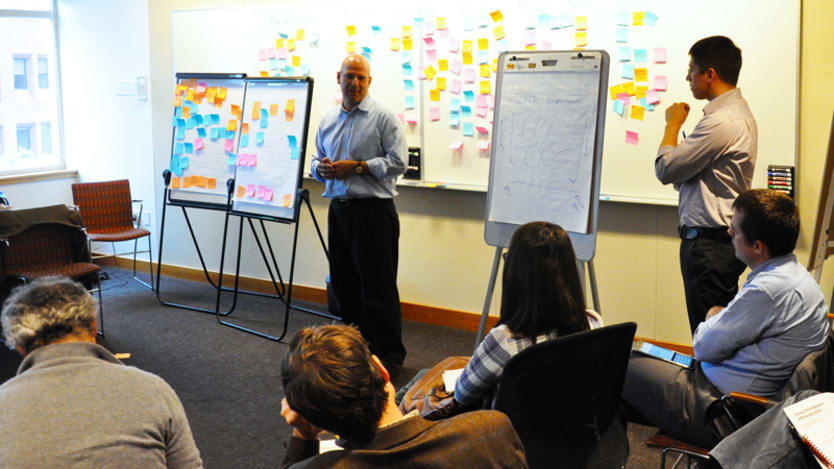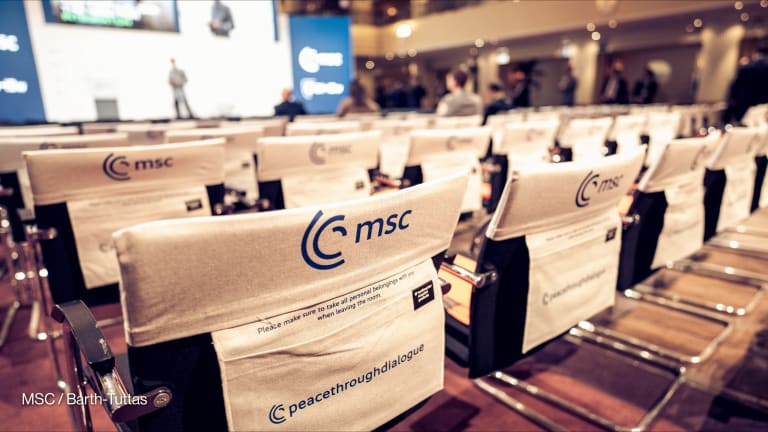
As the dust settles on the U.K. elections, it is good to reflect on the gap that has opened up between political and technical debates about international development.
The U.K. is now a relatively large development donor. It is no surprise that international issues were not prominent in the parties’ election campaigns. More remarkable was the complete absence of fresh ideas about development, even in the fine detail of the party manifestos. The only break in the consensus about how to tackle global poverty and inequality was the proposal of the U.K. Independence Party to move public spending wholesale away from aid.
This is striking — some would say shocking — in view of the rather vigorous debate that is now taking place among experienced participants in development processes and programmes.
This debate focuses on the revealed limitations of preplanned, overly designed interventions that pretend to have ready-made answers in spite of the challenging uncertainties of development in the real world. It has evidenced the value of “learning by doing” approaches based on purposeful experimentation and rapid-cycle adaptation, with people who are close to the problems taking the lead in finding solutions.
Debate about the implications of “doing development differently” is now commonplace around the world, with funders, implementing organizations, planners and activists actively discussing what needs to change. A recent meet in Manila, for example, brought together signatories of the Doing Development Differently manifesto with like-minded practitioners from across Asia.
Where might this agenda go next? Here are three priorities:
First, the scale of the ambition needs to be ramped up, so that even politicians begin to get the idea. The Doing Development Differently principles are not new, but in the past pleas for development practice to become more locally led, politically smart and adaptive never broke through the glass ceiling between the experience-based convictions of practitioners and the priorities of top decision-makers — the people who make the rules under which planners and implementers operate: politicians in developing and developed countries alike.
Bigger global networks, more case studies and sharper arguments will certainly help, but we will likely only get breakthrough if we can also mobilize a “bandwagon” effect. In development, fashions sometimes change fast, carrying everyone, including politicians, with them. All that may be needed, according to past experience, is a couple of examples of a fresh approach being applied that are sufficiently large, self-confident, well-publicized and effective to invite imitation, creating an atmosphere in which no one wants to be seen failing to adopt the latest big idea.
In the U.K., Doing Development Differently will have succeeded if, in five years’ time, aid is on the election agenda not just as a quantitative spending commitment, but as a new, more honest and politically attractive narrative of change.
Second, there is much still to be done to turn this into a truly global movement. Creating a bandwagon requires ripple effects — reaching out to different regions, sectors and professions. A growing number of practitioners are signing up to the manifesto and connecting with others. There is also a growing library of examples and documented experience, bringing together a range of on-the-ground experience of what’s working and what isn’t. But this still only scratches the surface of the exciting but largely unheralded experience that is out there in different parts of the world.
Third, the DDD agenda needs to get more specific, in several ways. The movement’s six core principles are necessarily stated at a general level. Now we need ways of customizing the basic ideas for different sectors and audiences. More examples are needed of how a changed approach can help address particular shortcomings in development processes, from the learning crisis in education or the limitations of Ebola response to persistent inequities in economic growth and trade.
More specific ideas are also needed on how adaptive programming can best be introduced into the mainstream efforts of governments and development agencies. The Manila meeting discussed three options:
1. Bolting on adaptive components to conventional, preplanned programs — adding an adaptive element to a larger intervention in health or infrastructure, for instance.
2. Setting up conventional and adaptive interventions in parallel so that they “compete” to achieve the same outcome in a way that builds the evidence base.
3. Comprehensively shaping large interventions along DDD lines, with the manifesto providing a checklist of essential features.
Whichever option makes best sense in a given field, it will of course be important that the innovation is genuine. Paying lip service to adaptiveness or locally led problem-solving without changing the substance is a significant danger.
Finding ways to realize these priorities — and the perils to be managed along the way — should be a top issue for the development of this growing community and for the debate on how to realize, and sustain, real change in policy and practice.
Join the Devex community and access more in-depth analysis, breaking news and business advice — and a host of other services — on international development, humanitarian aid and global health.









